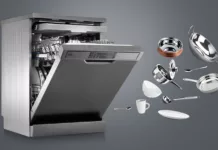(India Science Wire): Current commercial Lithium-Ion Batteries (LIBs) require the extraction of rare minerals, such as cobalt and lithium, which can have significant environmental impacts. Sodium-Ion Batteries (SIBs) have the potential to offer a more sustainable, cost-effective, and safe alternative to lithium-ion batteries. A research group at CSIR-National Chemical Laboratory (NCL), Pune, has come closer to developing SIBs that can be commercialised.
Along with offering sustainability, SIBs provide a lower cost per kilowatt-hour, which could make them attractive for large-scale energy storage applications. However, for the development of scaled-up products and wider commercialization of SIBs, it is crucial to understand core components from the point of material science, chemistry, and electrochemistry. The study looked into recent optimization strategies for each element of SIBs, i.e., electrodes, electrolytes, and binders.
“This is a review article and as per our study of literature and our own experience of building a sodium ion battery prototype, a judicial selection of electrode materials, electrolytes, and interfaces are crucial for safe, high-power, and long-lasting sodium-ion batteries. Different strategies are summarized in the review,” informs the team while speaking to India Science Wire.
Currently, the limited supply of precursors and the cost of LIBs have called for research and development interest in SIBs. Due to differences in the chemistry of Li and Na, optimized methods for LIBs cannot be blindly applied to develop SIBs. The judicial selection of electrode materials, electrolytes, and interfaces are crucial for safe, high-power, and long-lasting batteries.
Additionally, sodium is the fourth-most abundant element on Earth. A low-cost Aluminium current collector can be used at both the anode and cathode side, which does not alloy with Na metal. It is also lighter than Copper, which is used as the current collector in LIBs. Also, SIBs are safe to transport at 0 V as opposed to LIBs. They offer high power and charge fast.
SIBs are promising alternatives in cost and electrochemical performance for the grid-storage application. With thorough optimization of every component, their electrochemical performance can be enhanced to meet large-scale energy storage. In their review, the researchers have dealt with the challenges faced in commercializing SIB full cells. Subsequently, they have also explored strategies to improve the energy density of SIB full cells through electrode modifications and electrolyte engineering.
Graphical abstract of the study
The study team comprised Poonam Yadav, Apurva Patrike, Kundan Wasnik, Vilas Shelke, and Manjusha Shelke. They have also incorporated an official CSIR-NCL spin-off company Rechargion Energy Pvt. Ltd to commercialize the SIBs. The study has been conducted with funding support from the ARAI accelerator grant, the Council of Scientific and Industrial Research (CSIR), and the Department of Science and Technology (DST). An article based on the study’s findings has been published in Materials Today Sustainability.
































